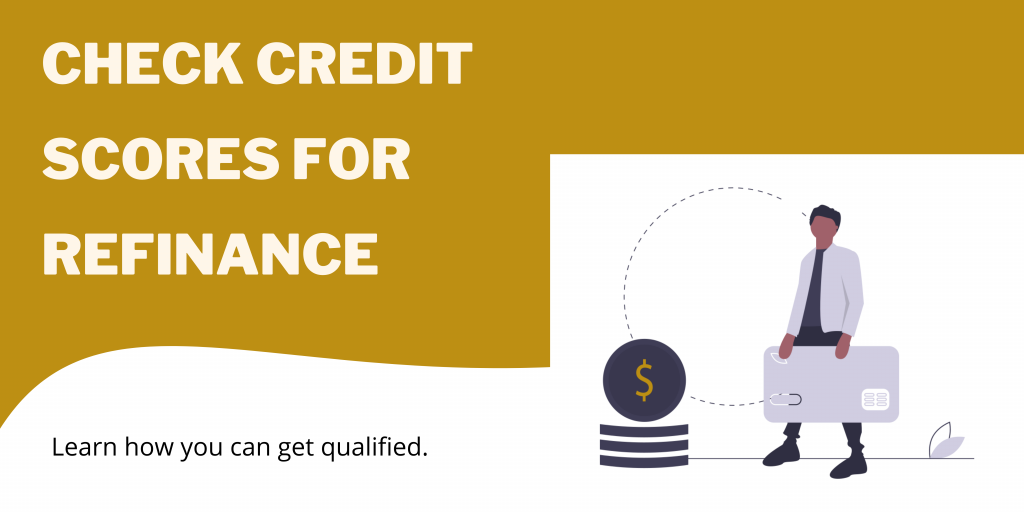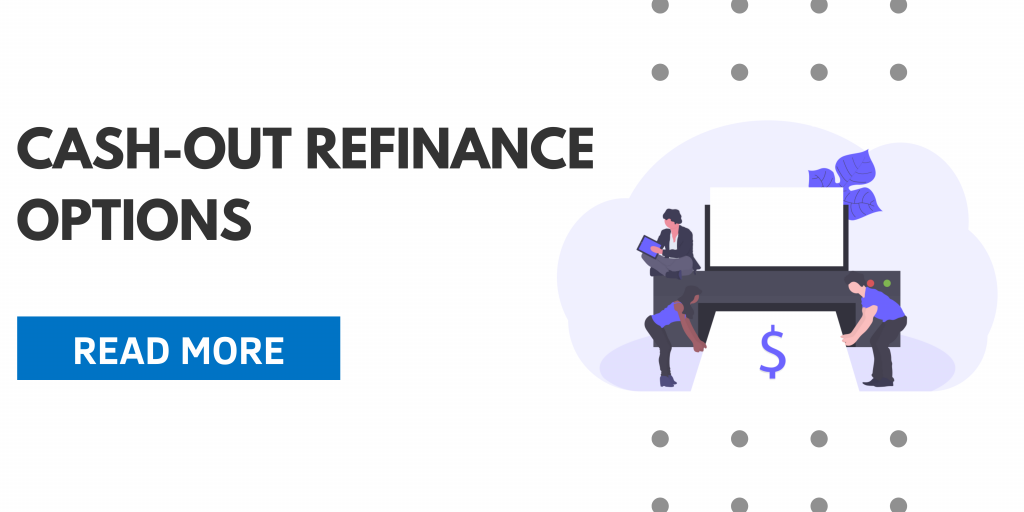Although investment properties can be moneymakers, they also often require a lot of effort. If you want to refinance an investment property, Here are a few things you need to know.
In this blog post, we will discuss the process of refinancing an investment property and give tips on making it go as smoothly as possible. Let’s get started!
Refinancing 101
The first step in refinancing an investment property is understanding the basics of a mortgage refinance. Then, if you choose to refinance, You take out a new loan and use the money from this loan to pay off your old one.
Therefore, you’ll need to consider your goals and whether the new loan will help you reach them. Research and compare different mortgage lenders before committing to any particular lender or loan.

How To Refinance An Investment Property
Once you understand refinancing basics, it’s time to start looking at lenders and loans. One important thing to consider is whether or not the loan will be a cash-out refinance.
In addition to paying off your home loan, if you own a property a primary residence, you can use it as collateral to borrow money. It can be a great way to raise funds for investments or other expenses.
However, it will also increase your debt load and can make refinancing more expensive in the long run. Next, you’ll need to compare lenders and loan terms.
Ensure you read the fine print carefully before committing to a particular lender or loan. You should also consider the fees associated with the loan and ensure they are reasonable.
Finally, find out what documentation you’ll need to provide for your new lender to approve the refinance. It may include financial documents such as tax returns, bank statements, and other paperwork.
Once you have the necessary documentation, you can continue your refinance.

The Process Of Refinancing An Investment Property
Build Come Equity
You can grow this equity by making regular contributions, which you can later use to maintain your investment property or improve it. Finally, venture into generating rental income to create more equity.
Submit Some Of The Following Documents:
• Application for Loan
• Proof of Income
• Credit Report
• Current Mortgage Statement(s)
• Home Appraisal
• Title Report
• Proof of Ownership
Get The Best Refinance Rate And Start Saving
When refinancing your investment property, getting the best rate is essential. Compare lenders and look for deals with lower interest rates or better terms.
Refinancing an investment property allows you to take advantage of lower interest rates or different terms than what was available with the original loan. While it’s essential to research and compare lenders, refinancing can be simple.
Securing Your Interest Rate
Once you find the right loan, securing your interest rate is essential. Your interest rate will determine how much money you’ll save over the life of the loan – so it’s necessary to be sure you’re locking in a competitive rate.
Once your interest rate is locked in, your loan will be ready for closing. However, depending on the lender and other factors, it can take a few weeks or longer, so plan accordingly and stay on top of the process.
Proceed With The Underwriting Process
Once the paperwork is in order, your loan will go through underwriting. It is a process where an underwriter reviews your documentation and determines whether or not you qualify for the loan.
The underwriter may ask you to provide additional documentation before making a decision, so be prepared and answer any questions promptly. Once the underwriter approves your loan, you can start the closing process.
Close On Your New Loan
You can move forward with the closing when the underwriting process is complete, and your loan is approved. It typically involves signing paperwork and paying any fees associated with the loan.
Following the steps outlined above, you can quickly refinance your investment property and start saving money on your mortgage payments. In addition, if you get a loan and do your research, refinancing can help improve your finances.
Refinance An Investment Property: Qualifications
Have A Good Credit Score And Debt-To-Income Ratio.
Lenders will often examine an applicant’s credit score and debt-to-income ratio to decide on their loan. Having strong numbers in both of these areas will increase your likelihood of being approved for the loan.
A high credit score is an evidence to lenders that you will repay what you borrow, while a low debt-to-income ratio shows that you have the financial resources to make your loan payments. Borrowers who want the best interest rates should be working towards a credit score of 720 or higher is ideal and a debt-to-income ratio below 43%.
You Have More Equity Than What Is Required For The Loan.
More equity means more ownership. Having more equity means you own more of the company outright and have less to borrow. It can be beneficial in many ways.
One benefit of good credit is that it has more wiggle room to take out a loan if needed. Additionally, it can help reduce your overall borrowing costs, as you can get better terms on a loan if you have more equity.
Must Have At Least Cash reserves
Any successful business knows that cash is king. So you need to have a healthy mix of short- and long-term cash reserves to cover unexpected expenses, take advantage of new opportunities, and weather any storms coming your way.
Building up your cash reserves takes time and discipline, but it’s worth it in the long run. A cash cushion provides mental tranquility in knowing you can cover future expenses.
Having An Eligible income
An eligible income is an income that allows you to qualify for certain benefits or programs. There are several ways to prove that you have a suitable income.
Proving that you have an eligible income can be a complex process, but it is essential if you want to take advantage of certain benefits or programs.
Must-Have Average Closing Costs
Closing costs are the fees associated with your loans, such as title, homeowners insurance, and appraisal fees. They typically range from 2-5% of the loan amount, though this can vary depending on the lender.
It’s important to factor in closing costs when budgeting for an investment property refinance. Ensure you understand what you’ll need to pay and how it will affect your monthly payments.
By understanding the qualifications needed for rental property refinance and researching potential lenders, you’ll be well-equipped to make the best decision for yourself.
Tips On Refinancing An Investment Property:
• Research lenders and compare investment property mortgage rates to find the best deal.
• Negotiate incentives such as closing cost waivers or other perks.
• Secure your interest rate before it changes with locked-in periods.
• Have at least three months of cash reserves set aside.
• Prove you have an eligible income to qualify for certain benefits.
• Factor in closing costs when determining your budget.
• Shop around and take advantage of discounted fees.
• Utilize online tools, such as mortgage calculators, to understand your loan options.
• Be mindful of fees and other costs associated with refinancing.
By following these tips, you’ll be better equipped to make the most out of refinancing your investment property. With some research and preparation, you can save money and access better terms on your loan.
Considering All Of These
Refinancing a rental property, an investment property can save money, help you get better terms, and improve your cash flow. However, it’s essential to understand the qualifications needed and research potential lenders before you commit.
By having at least three months of cash reserves set aside, proving you have an eligible income, and shopping around for lenders, you’ll be better positioned to make the best financial decision. Then, with some preparation and effort, you can make refinancing an investment property work in your favor.
With the right strategy, you can save money, access better terms on your loan, and use your home’s value to get ahead. Refinancing an investment property can help you become wealthy and improve your financial situation.
FAQs
How complicated is it to refinance an investment property?
Refinancing an investment property can be complicated, depending on your investment property loan type and other factors. Therefore, it is essential to research and compare rates from different lenders to decide which is best for you.
If I refinance my rental property, how will that affect my taxes?
The tax implications for rental property refinancing can vary, depending on the situation. You can generally claim certain deductions related to mortgage interest, monthly mortgage payments, or other fees associated with investment property loans.
Can you evade capital gains tax by refinancing?
No, you cannot evade capital gains tax by refinancing process. However, it may be possible to defer or reduce the taxes you owe if certain conditions are met.
It is essential to consult a tax professional to understand the implications of your specific situation.



